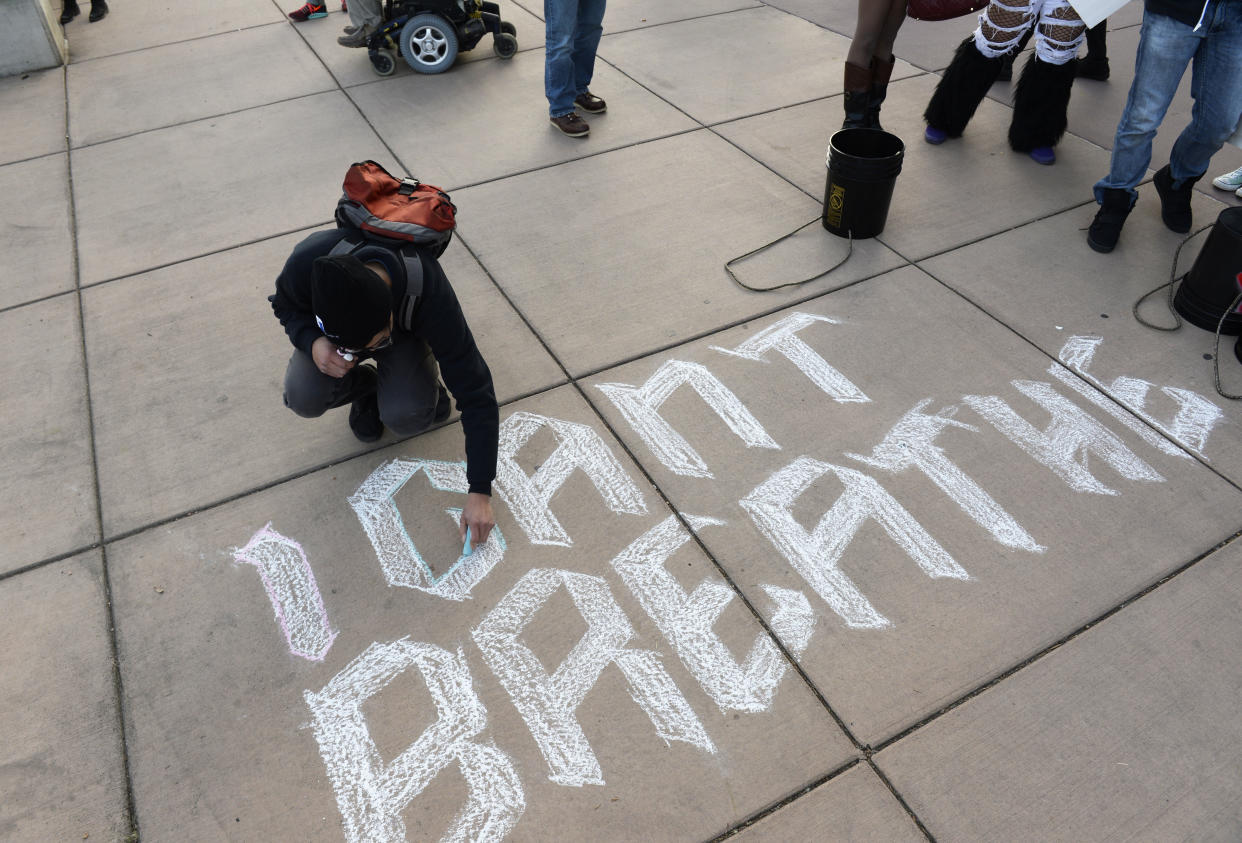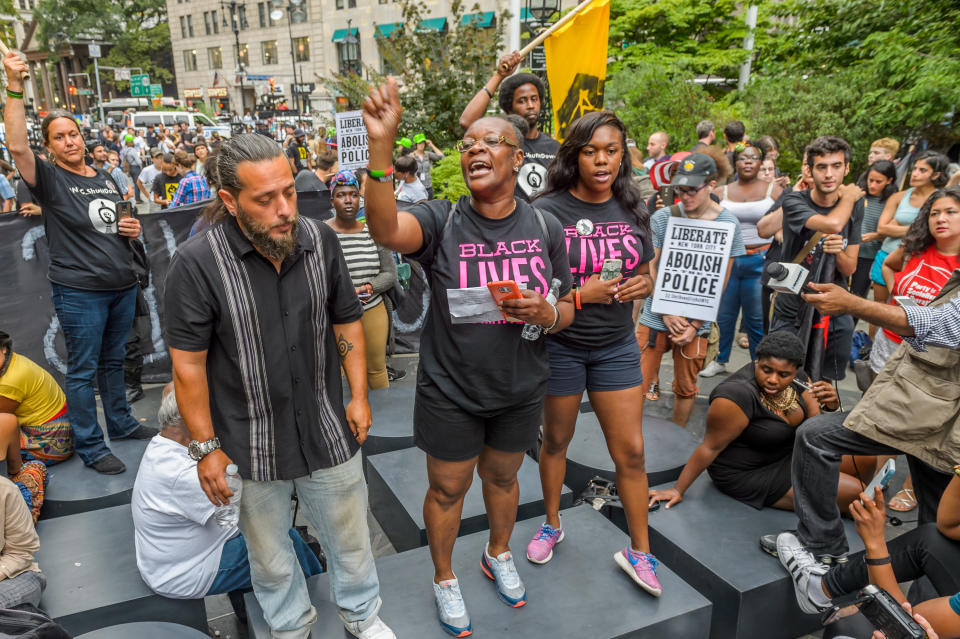Another Black Man Told Police 'I Can't Breathe.' One Replied 'Who Gives A F**k?'

CINCINNATI (CN) - A grieving mother and three other relatives were in attendance Friday for a Sixth Circuit hearing regarding the death of Rodney Brown at the hands of Cleveland police in 2010.
Officers had pulled Rodney Brown over on New Year's Eve 2010 for allegedly driving with the headlights off.
Brown's family claims that officers asked 40-year-old Brown to get out of the vehicle, then elbowed him the back of his neck during a pat down.
They say Brown then ran across the street and turned to face the officers but did not threaten them in any way. Brown fled when an officer used a stun gun on him, and police say the man resisted violently as several officers tried to subdue him, repeatedly deploying their Tasers.
A police radio captured Brown repeatedly telling officers that he could not breathe as they carried him handcuffs to a squad car, to which one of the officers replied, "Who gives a fuck?"
Once he was in the police car, an officer noticed Brown's pupils were fixed, and police eventually took him out of the vehicle and propped him up on the curb.
When Emergency Medical Services arrived at the scene, Brown was nonresponsive and in full cardiac arrest.
Shirley Brown filed suit over her son's death in 2011.
The case is before the Sixth Circuit now as the officers appeal a federal judge's refusal to grant them immunity on the claim that they were deliberately indifferent to Brown's serious health condition.
Cleveland city attorney John Bacevice Jr. told a three-judge panel Friday that the lower court should not even have heard the deliberate-indifference claim because Brown's mother failed to plead it in her complaint.
When Judge Karen Nelson Moore asked if Brown could amend her claims should the court reverse, Bavevice said, "That would be wholly unfair."
"We've litigated this case for four years ... and [amending the complaint] would basically give the plaintiffs a do-over," the attorney argued.
Insisting the lower court also applied the wrong standard, Bavevice said, "Brown did not show serious medical need until the officers could hear the sirens of the EMS."
Judge Moore asked why Brown's repetition of the phrase "I can't breathe" did not constitute serious medical need.
Bacevice replied: "Brown was viciously fighting off the officers for several minutes after making these statements."
"These [police officers] are not doctors; they are not nurses," the attorney added. "They did the best they could."
Nurses or not, Al Gerhardstein, an attorney for Brown's estate and mother, said, "these officers are on the hook because they saw this developing."
When the EMS team arrived, Brown "was propped up on one of the officer's legs," the attorney noted.
Things could have ended differently if the officers had informed EMS of the severity of the situation to improve response time, Gerhardstein said.
Bacevice countered on rebuttal that the response time for EMS teams is the same regardless of how an officer reports the situation, and that "serious signs of distress did not manifest until [60 to 90 seconds] before the EMS got there."
While officers are appealing for immunity, Brown's mother hopes the court will revive her claim that police lacked probable cause and that the city should be held liable.
Two witnesses say Brown had his headlights on when he was driving, contradicting the officers' story.
Implored the panel to return the case to the District Court, Gerhardstein called the officers' version "classic circumstantial evidence" and said a jury should solve the discrepancy.
Bacevice reminded the panel that the eyewitnesses had not come out of their home until officers had already stopped Brown, and that someone being pulled over would likely turn on their lights immediately once they realized they had been off.
Judge Ronald Lee Gilman asked Gerhardstein about the consequences if the stop had been illegal, remarking that he may have been detained for "five minutes" before being sent on his way.
Gerhardstein replied: "We're in Cleveland. There is a lot of nervousness between police and citizens. If he hadn't been stopped, he'd be alive. If he hadn't been Tased, he'd be alive."
Gilman interjected: "If he hadn't struggled so much, he'd be alive."
Gerhardstein conceded the point, but told the panel to "let a trial decide that."
"This is not summary-judgment material," the attorney added.
As Gerhardstein moved on, he claimed Cleveland's policy of training officers to aim for a suspect's chest when firing their Tasers opens the city up to liability.
Taser International instruct users to aim below the chest when firing the weapon, the attorney noted.
Bacevice blasted the family's attorney for arguing that a private corporation's literature should be considered binding in a court of law.
Taser International is "trying to cover its ass from future product-liability suits," the city attorney said. "Law is not made by Taser International, just like the law is not made by Google or your neighborhood grocery store."
For a case that captured the U.S. public's attention nearly five years ago, the courtroom was noticeably empty, with the exception of Brown's family.
Judge Eric Clay rounded out the panel.
No timetable has been set for a decision by the panel.
This story was originally published by Courthouse News Service.
Also on HuffPost:

Love HuffPost? Become a founding member of HuffPost Plus today.
This article originally appeared on HuffPost.
